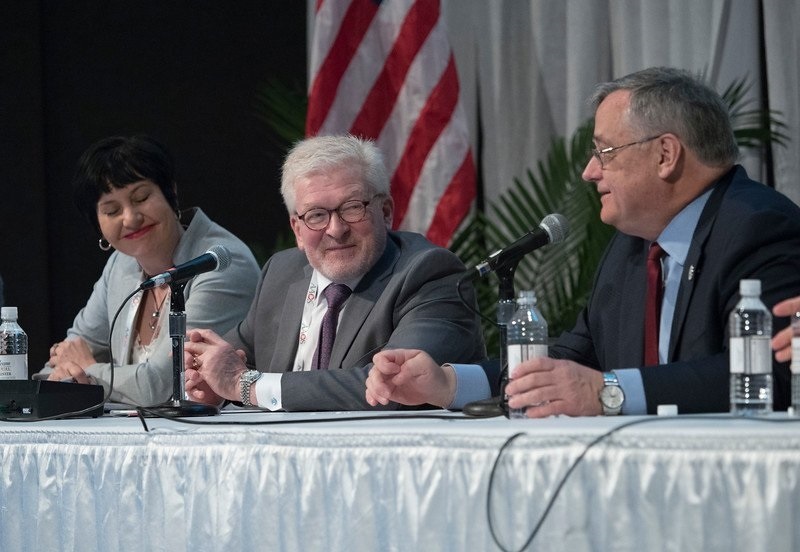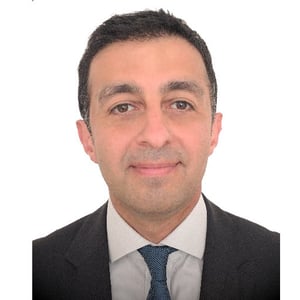Watch and Learn From 12 International Registry Presentations

The American Academy of Orthopaedic Surgeons (AAOS) is committed to encourage and provide lifelong learning opportunities to its members and that is exactly what it did at the International Society of Arthroplasty Registries (ISAR) Symposium at its 2018 Annual Meeting. "What Can a Registry Do for Me?" showcased a dozen real-world data outcome uses from registries around the world and presented data and insights gained through these registry efforts.
ISAR members have a shared purpose of improving outcomes for individuals receiving joint replacement surgery worldwide. The focus of the society is to utilize the strength of cooperation and sharing of information and further enhance the capacity of individual registries to meet their own aims and objectives.
A recording and slide presentation of "What Can a Registry Do for Me?" is organized under four subject areas:
- Part 1 - Health Care Quality and Payment
- Part 2 - Identify Clinical Best Practices and Improve Patient Care
- Part 3 - How to Use Your Own Data
- Part 4 - Implant Selection and New Technology
Today's blog provides a "front-row seat" for you to listen and view the complete symposium content. Symposium highlights are also below.
ISAR Symposium Highlights
Symposium moderator Henrik Malchau, MD, adviser to ISAR, and Liz Paxton, director of Kaiser Permanente's national implant registry program, opened the session with an outline of the importance of patient registries, arising from the need for the following:
- Real-world evidence, drawn from diverse patient groups; multiple exposures procedures; and a variety of participating centers
- Large numbers that enhance capability differences
- Longitudinal follow-up
- Signal detection
- Use as a quality improvement mechanism
Registries Around the Nation
AJRR
AJRR Medical Director David G. Lewallen, MD, talked about how far the Registry had come since 2003. AJRR exceeded the one million procedures milestone in 2017, and now collects more procedures per year than any other hip and knee arthroplasty registry worldwide. In 2016, the 281,746 procedures it collected eclipsed the numbers of trailblazing registries in the United Kingdom, Australia, New Zealand, and Sweden. He emphasized, "AJRR still has more to do in reaching its data collection goals" including:
- Increasing the depth of data collection: comorbidities, complications, patient-reported outcome measures (PROMs)
- Increasing the breadth of data collection: more procedures, hospitals, ambulatory surgery centers (ASCs), surgeons
- Pending 90% > national data collection: accessing claims data for revisions and implant survivorship curve analysis
- Documenting overall high quality and value of arthroplasty care
 Chair of the AJRR Steering Committee Kevin J. Bozic, MD, MBA, offered some guidance in navigating the U.S. health care environment as the federal payment model migrates from fee-for-service to payment for value or quality. A robust U.S. registry network will empower physicians in the shift to bundled payments and other programs that reward positive patient outcomes and improvement. "If we want to get better at what we do, we want to be able to track the outcomes of what we're doing. Registries are a turnkey way to do that," said Dr. Bozic.
Chair of the AJRR Steering Committee Kevin J. Bozic, MD, MBA, offered some guidance in navigating the U.S. health care environment as the federal payment model migrates from fee-for-service to payment for value or quality. A robust U.S. registry network will empower physicians in the shift to bundled payments and other programs that reward positive patient outcomes and improvement. "If we want to get better at what we do, we want to be able to track the outcomes of what we're doing. Registries are a turnkey way to do that," said Dr. Bozic.
Michigan Arthroplasty Registry Collaborative Quality Initiative (MARCQI)
At the state level, Brian R. Hallstrom, MD, co-director of MARCQI, reported that they had 67 sites, 525 surgeons, and more than 200,000 cases. The MARCQI group had notable success in a campaign to reduce blood transfusions. The effort resulted in a MARCQI transfusion rate of 0.9 percent for total knee arthroplasty versus a national rate of 4.4 percent. "A registry can be viewed as a quality improvement project," Dr. Hallstrom said. "It identifies variation and allows us to share best practices," he added. MARCQI is independent of AJRR, though some MARCQI hospitals also send data to AJRR.
Kaiser Permanente
Robert S. Namba, MD, Kaiser Permanente, explained how leveraging registry data aided efforts to reduce prolonged opioid use after total joint arthroplasty. Use of opioids after 90 days post-surgery was reduced from 39 percent to 12 percent (total knee replacement) and 35 percent to 9.1 percent (total hip replacement).
Registries Around the World
ISAR members outside the U.S. also had impressive achievements to share including registries that focused discussion on How They Use Their Own Data (Australian Orthopaedic Association National Joint Replacement Registry, New Zealand Joint Registry, Function and Outcomes Research for Comparative Effectiveness in Total Joint Replacement) and Implant Selection and New Technology (National Joint Registry, Nordic Arthroplasty Register Association, Australian Orthopaedic Association National Joint Replacement Registry, AdvaMed).
Sweden's Quality Improvement Efforts
In Sweden, where arthroplasty registries date back to 1976, Maziar Mohaddes, MD, PhD, shared that in 2003, registry reporting alerted practitioners to a heightened risk of dislocation with the commonly used FAL cup for hip arthroplasty, leading to sharply curtailed use of the cup. At Dr. Mohaddes's institution, Sahlgrenska Hospital, use of registry information helped identify 17 areas of improvement that led to changes that yielded reductions in risk of reoperation, number of dissatisfied patients, length of stay, and cost, while the number of procedures rose 60 percent.
"Using a patient-oriented management philosophy and employing data from registries has contributed to a marked improvement in quality of care and increased availability, while decreasing costs," Dr. Mohaddes said.
>Watch global registry achievements here.
Attributions
- 2018 AAOS Annual Meeting, ISAR Symposium titled, "What Can a Registry Do for Me?"
- The Rationale for Registries, Terry Stanton, https://www.aaos.org/News/DailyEdition2018/Thursday/002/
For information about the AJRR RegistryInsights™ platform, speak with a Business Development Representative at (847) 292-0530 or Request A Demo today!
Be sure to leave a comment in the form below!

